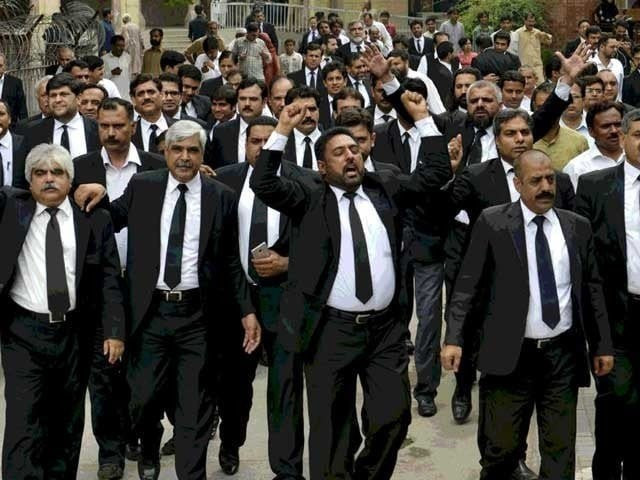Legal fraternity differs on modus operandi
Voices sounded alarms that SC 'seized' power from legislative, executive branches to have final say on Constitution

Although the legal fraternity is unanimous that the discretionary powers of the chief justice of Pakistan must be regulated, they have a difference of opinion on whether this should be carried out through an act of parliament or amending the Supreme Court Rules, 1980.
The CJP currently enjoys unfettered discretionary powers to form benches, ‘fix’ cases and initiate public interest proceedings under Article 184 (3) of the Constitution.
Similarly, as the chairman of the Judicial Commission of Pakistan (JCP) as well as the Supreme Judicial Council, he has vast discretionary powers in the process of appointments of judges and their removal under Article 209 of the Constitution.
After issuing a wave of hotly-contested decisions in recent months, voices -- both inside and outside -- have sounded alarms that the Supreme Court had “seized” the power from the legislative and executive branches to have the final say on the Constitution.
However, legal experts reckon that the apex court is unwilling to concede its jurisdiction as the federal government is considering stripping the superior judiciary of its powers and returning it to where it thinks it belongs.
The top court, they believe, will wrest it back by striking its gavel.
The federal government has approved a draft to carry out legislation regulating the CJP's powers to invoke public interest jurisdiction under Article 184 (3) of the Constitution, fixation of cases and composition of benches.
However, the lawyers are debating as to whether or not a “divided” SC will review these proposed amendments.
A senior lawyer has already opposed any move to regulate the discretionary powers of the CJP through a simple piece of legislation. He emphasised that it could only be carried out through amendments to the SC’s rules -- a move that could only be carried out by the top court itself.
Similarly, former additional attorney general Waqar Rana echoed the senior lawyer’s views, saying that the jurisdiction of the apex court could only be determined by the Constitution and there was no other way.
He added that there was no authority to regulate the CJP’s powers through a simple legislation.
Read ECP had no authority to postpone elections: CJP Bandial
Rana pointed out there were SC judgments defining the powers of the CJP that could not be overturned through a simple act of parliament as an amendment to the Constitution was required for this purpose.
It is being witnessed that PTI lawyers are opposing the government’s proposed legislation to curtail the CJP’s powers.
Last year, Senator Ali Zafar had given his opinion that amendments to the law would merely translate into procedural changes.
He noted that a constitutional amendment was required to place regulations on the jurisdiction.
Barrister Asad Rahim Khan observed that curtailing the CJP’s power through an act of parliament was a “clownish” attempt -- in the same vein as Israel’s Benjamin Netanyahu -- to declaw the one institution standing in the way of the Constitution’s violation.
“It can’t be done through ordinary legislation, and it attacks the independence of the judiciary,” he added.
Commenting on the proposed amendments, former Sindh High Court Bar Association president Salahuddin Ahmed said they were “excellent”.
He added that the much-needed amendments were what all the bars had been demanding for at least a decade.
“Everyone should stand behind them [amendments]. If the PTI is wise and not playing an ‘all or nothing game’, it will support them,” he continued.
He also referred to Article 191, which specifically read: “Subject to the Constitution and law, the SC may make Rules”.
In December 2019, ex-CJP Asif Saeed Khosa, in a full court meeting, had shared with other apex court judges a draft of proposed amendments to the Supreme Court Rules, 1980 to regulate suo motu power, exercised by the chief justice to adjudicate public interest matters.
These amendments were almost similar to the ones, which are now being proposed by the federal government.
However, no full court meeting has been convened to approve the amendments to the SC Rules, 1980 for the last three years.
It is expected that the CJP now might form a full court to review the legislation from a judicial perspective.



















COMMENTS
Comments are moderated and generally will be posted if they are on-topic and not abusive.
For more information, please see our Comments FAQ